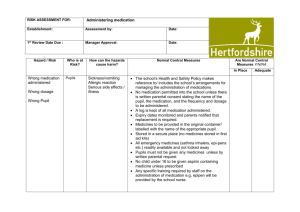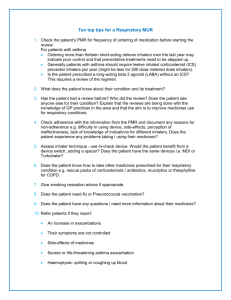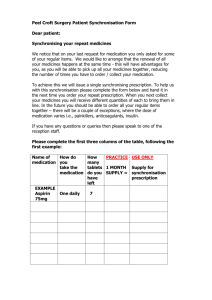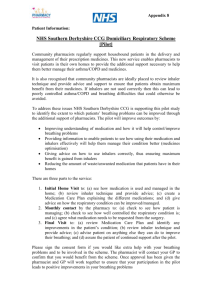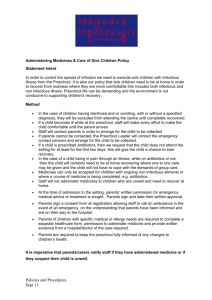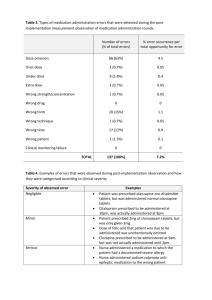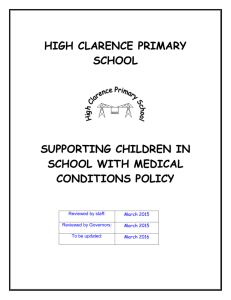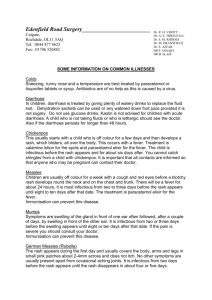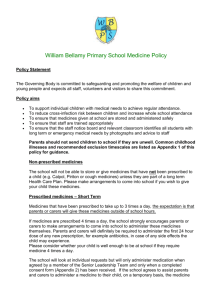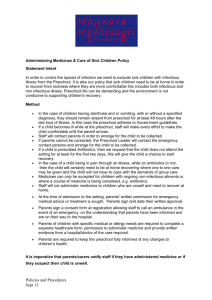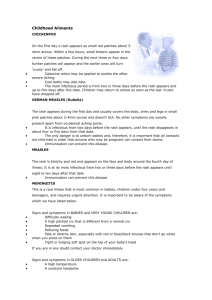Medical Policy
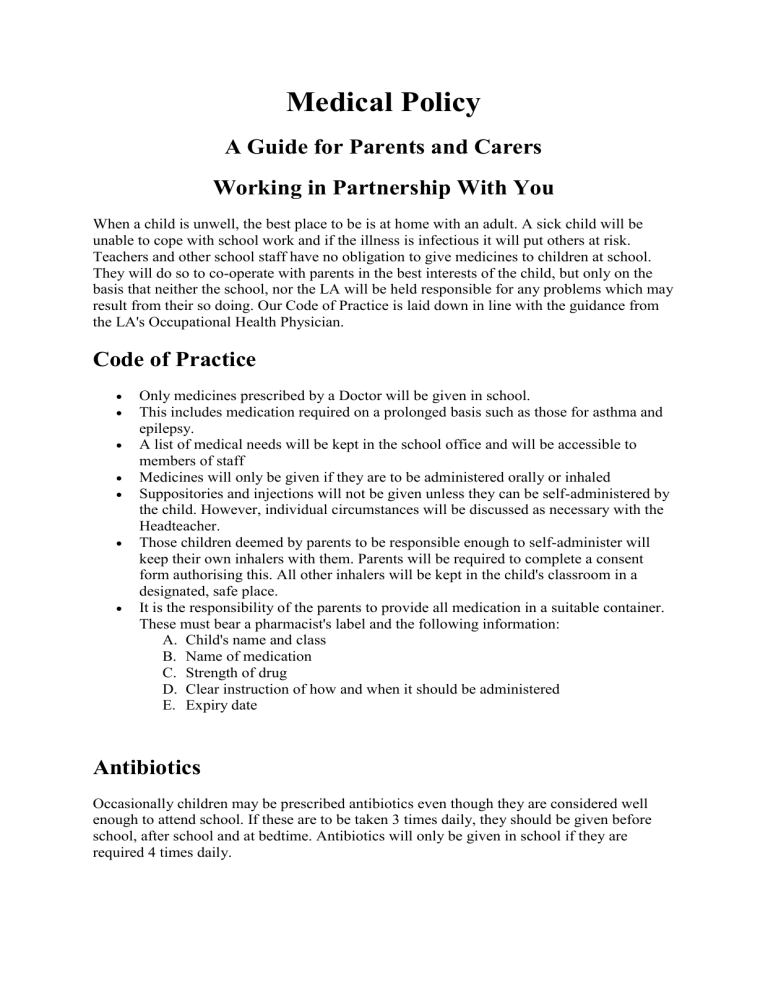
Medical Policy
A Guide for Parents and Carers
Working in Partnership With You
When a child is unwell, the best place to be is at home with an adult. A sick child will be unable to cope with school work and if the illness is infectious it will put others at risk.
Teachers and other school staff have no obligation to give medicines to children at school.
They will do so to co-operate with parents in the best interests of the child, but only on the basis that neither the school, nor the LA will be held responsible for any problems which may result from their so doing. Our Code of Practice is laid down in line with the guidance from the LA's Occupational Health Physician.
Code of Practice
Only medicines prescribed by a Doctor will be given in school.
This includes medication required on a prolonged basis such as those for asthma and epilepsy.
A list of medical needs will be kept in the school office and will be accessible to
members of staff
Medicines will only be given if they are to be administered orally or inhaled
Suppositories and injections will not be given unless they can be self-administered by the child. However, individual circumstances will be discussed as necessary with the
Headteacher.
Those children deemed by parents to be responsible enough to self-administer will keep their own inhalers with them. Parents will be required to complete a consent
form authorising this. All other inhalers will be kept in the child's classroom in a designated, safe place.
It is the responsibility of the parents to provide all medication in a suitable container.
These must bear a pharmacist's label and the following information:
A.
Child's name and class
B.
Name of medication
C.
Strength of drug
D.
Clear instruction of how and when it should be administered
E.
Expiry date
Antibiotics
Occasionally children may be prescribed antibiotics even though they are considered well enough to attend school. If these are to be taken 3 times daily, they should be given before school, after school and at bedtime. Antibiotics will only be given in school if they are required 4 times daily.
No Paracetamol, Calpol or similar drugs will be administered in school. The keeping of Paracetamol. Calpol or any other pain relieving drug is expressly forbidden in school.
Immunisation
It is expected that parents take responsibility for the immunisation of children in relation to
MMR, whooping cough, tetanus. polio and diphtheria. Children starting school should have had their second booster in all the above.
Guidance on infection Control
The following is the recommended period that a child should be kept away from school in order to minimise the risk of transmission of infection to other children and staff:
Diarrhoea and vomiting 24 hours after last attack
Chicken Pox 5 days from onset of rash
Measles
Head Lice
Ringworm
5 days from onset of rash
None—once head is treated
None— once area is treated
School Nursing Service—Woodside Health Centre
When a child starts at school in Reception, one of the school nursing team will see them to measure their height and weight and check their vision. For this parents will be sent a consent form. They also offer appointments if you have health concerns about your child. Details of how to contact them can be obtained from the school office.
Dealing with Minor Accidents in School
Children who meet with minor accidents at school are dealt with by members of staff who have had First Aid training.
When a child sustains a head injury, parents and carers will be informed by telephone and a letter sent home in the book bag.
Additional Medical Information
In addition to the medical information already given on the Emergency Contact Form, please can parents supply any additional medical conditions that the school may need to know about on the enclosed Medical Information Form.
Submit feedback
